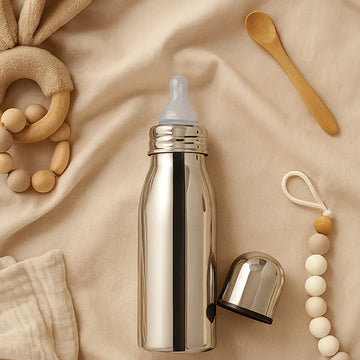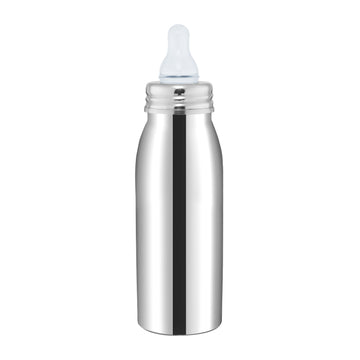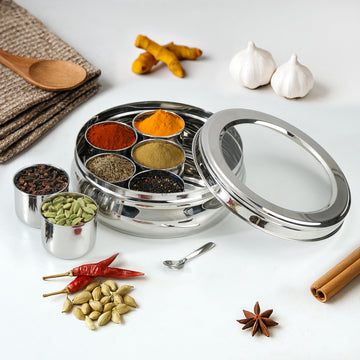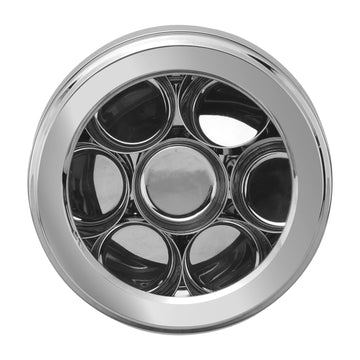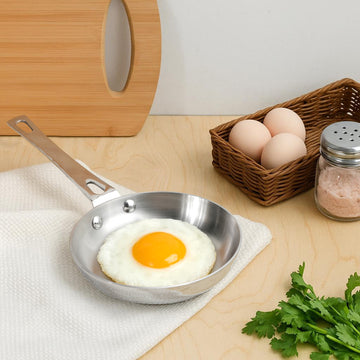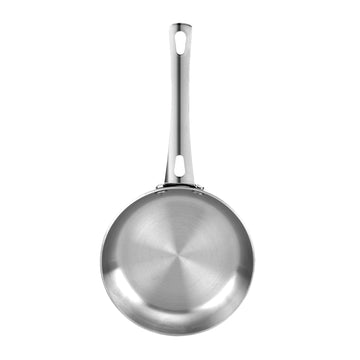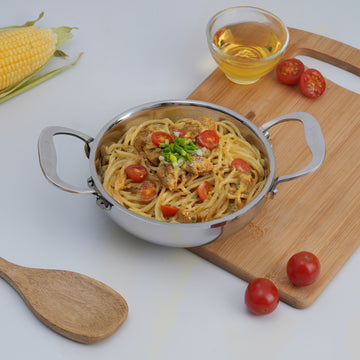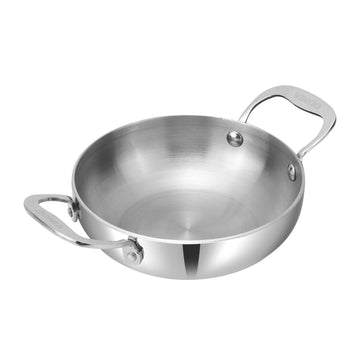Tips On How to Get Sticky Oil Off Pots and Pans
 What defines Indian cooking from other cuisines? The aromatic flavour! And cooking oil plays a major role in preparing Indian dishes and getting the perfect taste. However, we all know cooking with oil can leave behind stubborn residue that clings to pots and pans and makes them difficult to clean. With the right techniques and a little patience, you can get your pots and pans looking clean and shiny once again.
What defines Indian cooking from other cuisines? The aromatic flavour! And cooking oil plays a major role in preparing Indian dishes and getting the perfect taste. However, we all know cooking with oil can leave behind stubborn residue that clings to pots and pans and makes them difficult to clean. With the right techniques and a little patience, you can get your pots and pans looking clean and shiny once again.
There is more than one right way to get oily gunk off your pots and pans. Here are some effective tips on how to get sticky oil off pans and pots.
Scrape off Excess Oil: Before you begin cleaning, always remove any excess oil or food particles from the vessel first. You can use a spatula or a plastic scraper to ease the cleaning process.
Vinegar: This is a kitchen favourite! White vinegar is an excellent natural cleaner that can cut through sticky oil. Make a mixture of vinegar and water, take both in equal parts. Spray the mixture onto the greasy areas of the pan/pot with the help of a spray bottle and let it sit for a few minutes. Then, scrub the pan/pot with a sponge or a brush and rinse thoroughly with water.
Hot Water and Dish Soap: Fill the sink or a large basin with hot water and add a few drops of dish soap. Submerge the vessel in the soapy water and let it soak for at least 15 to 20 minutes. The hot water and soap will help to loosen the oil, making it easier to remove.
Baking Soda: Baking soda is another versatile and effective cleaning agent. Sprinkle a generous amount of baking soda on the greasy areas and then add a little water to form a paste. Use a sponge or a soft brush to scrub gently. Baking soda is mildly abrasive and will help to lift the sticky oil without damaging the surface of the pan/pot.
Salt: Salt is a great abrasive cleaner that can help to remove sticky oil from pans and pots. Sprinkle a generous amount of salt onto the greasy areas and use a damp sponge or a brush to scrub gently. After scrubbing, rinse with hot water and dry it off with a clean cloth. The salt will act as a scrubbing agent, helping to loosen the oil and restore cleanliness.
Lemon Juice: Lemon juice is not only a natural degreaser but also leaves a pleasant citrus scent. Squeeze fresh lemon juice onto the greasy areas and let it sit for a few minutes. Then, scrub with a sponge or a brush and rinse thoroughly with water. The acidity of the lemon juice will help to break down the oil and leave your cookware looking clean.
Prevention Tips
Preventing sticky oil from building up on your vessel is the best way to avoid having to clean it off in the first place. Here are some tips for preventing sticky oil buildup on them:
- Use non-stick cooking spray or a small amount of oil to grease the vessel before cooking.
- Avoid using abrasive sponges to clean non-stick cookware. Here are 7 clever tips to increase the life of your non-stick cookware that we think might help you better.
- When cooking, use the correct amount of oil because too much oil can cause it to become sticky and hard to clean. Also, the right amount of cooking oil will help you prevent heart disease and digestion issues.
- Don't overheat your pot or pan. Overheating can cause the oil to burn and stick to the vessel.
With these tips, you can effectively remove sticky oil from your pans and keep them looking as good as new for years to come. Some pots and pans may require special care or have specific cleaning recommendations. The key is to choose a method that is safe for your particular pots/pans and to follow the instructions carefully.


